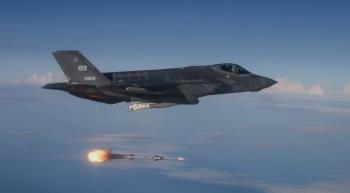Alwaght- Tensions resurfaced between Azerbaijan and Armenia this week on the first anniversary of a ceasefire between the neighbors following death of three Azerbaijani soldiers who were reportedly by killed a suicide attack at a checkpoint in Karabkah region. Yerevan and Baku accused each other of violating the November 9, 2020 peace deal that followed over a month of fierce clashes.
The recent clashes in the Karabakh region come as a severe battle broke out between them last year over the “mountainous Karabakh”, killing more than 6,500 soldiers and civilians from both sides. After 44 days of conflict on November 9, under an agreement brokered by Russia, Armenian Prime Minister Nikol Pashinyan signed a ceasefire agreement to give Azerbaijan control of parts of Karabakh region as well as adjacent areas, which had been occupied by Armenians since the first Karabakh war in the 1990s.
Following the agreement, about 2,000 Russian peacekeepers were deployed in the Karabakh region under a tripartite ceasefire agreement signed by Baku, Moscow and Yerevan. However, the peace accord has proven fragile and devoid of the necessary executive guarantees. Now, on the eve of the first anniversary of this agreement, with slightest movement, the forces of both countries are again in an offensive position.
Baku and Yerevan trade accusations about accord violations
A few days after the resumption of the clashes, Baku and Yerevan traded accusations about breaching the agreement terms. In the most serious statement, Leyla Abdullayova, spokeswoman for the ministry of foreign affairs of Azerbaijan, stressed that on November 9, 60 Armenian troops in the Lachin corridor advanced towards the positions of the Azerbaijani army, and on November 13, the Armenian troops opened fire on the positions of the Azerbaijani forces in Kalbajar District border region. She added that on November 14, Armenian troops “prepared further provocations and tensions” with their focus being Lachin District. On the opposite side, the Armenian defense ministry accused Azerbaijan of starting provocations, firing on Armenian positions in Gegharkunik province.
15 Armenian soldiers have been reportedly killed and 12 others were captured in border clashes in recent days, according to Reuters news agency. Armenia, on the other side, claimed that it has inflicted "heavy casualties" on Azerbaijani forces. "The clashes have continued and not diminished," Armenia's army stated.
On Tuesday, the European Union called for “urgent ceasefire.” Hours later, Armenia, which urged support from Russia, said that it agreed to a Moscow-called truce.
What is harming peace?
There are a set of issues that can be cited as the main factors that undermine the peace deal:
Weakness in the Russian peace-keeping mission: Weakness and ambiguity in the mission of the Russian peacekeeping force is one of the most important factors behind the fragility of the last year peace deal in the Karabakh region. In fact, the problem is that Russia's peacekeepers lack a precise mission. As set out in the November 9 ceasefire agreement, their presence is relatively small, limited to 1,960 troops with light weapons, 90 armored personnel carriers, and 380 other armored vehicles. They have set up 27 checkpoints along key transport spots in the Armenian-majority mountainous Karabakh and the Lachin Corridor, a narrow, eight-kilometer mountain road that connects the disputed region to Armenia. Russian peacekeepers have been conducting daily patrols in various parts of the region since August, but are only dispatched to the fronts when residents, Armenia and Azerbaijan, or surveillance drones report a problem. The surveillance drones take off from a joint Russian-Turkish command center, about 20 kilometers from the Azerbaijani village of Ghiamaldinli. The peacekeepers are also leading a demining process in the mountainous Karabakh and supporting a number of humanitarian initiatives.
Challenges of negotiations start: Another important factor behind the fragility of the peace process is the challenge associated with starting the negotiations. In fact, the situation on the front lines will remain intense as long as Azerbaijan and Armenia refuse to return to the negotiating table to address urgent issues, from aids to war-effected areas to demarcating the borders. Baku considers the conflict over and sees no reason to return to negotiation format developed by Minsk Group, a body comprised of the EU, Russia, and the US seeking ultimate solution to the decades-long dispute. A full year has passed since the beginning of the conflict before the group could arrange a meeting between the foreign ministers of Armenia and Azerbaijan, on the sidelines of the UN General Assembly on September 24. It remains to be seen whether this meeting will revive the negotiation process.
Landmines challenge: Moreover, landmines have proven to be a serious challenge to peace, especially that over the past year more mines were planted in the contact areas. A year after the war end, Karabkah region remains laced with unexploded landmines, with full clearing of lands may take over a full decade to complete. Over the past year, thousands of mines were destroyed but scanty information and lack of mine maps compound the cleansing process.
Estimations suggest that 16 square kilometers of land in the disputed region remain mine-contaminated, and under normal circumstances, at least 4 years of searching is needed to find and deactivate the explosive devices. In the past year, an Armenian citizen was reported killed by mines and at least 20 others sustained deep injuries and even amputation.
Establishing new trenches in close ranges: The offensive makeup of the both sides’ forces significantly undermines the peace. Actually, a majority of the incidents can be settled by direct contacts between the two armies, but things get worse as challenges remain unresolved. Both have dug trenches and established military positions a few kilometers from each other mainly near civilian areas, something risking lives of civilians in case of new clashes. Russian peace-keepers have ratcheted up their patrols and launched probes as exchange of fire has increased significantly over the past few months.



























